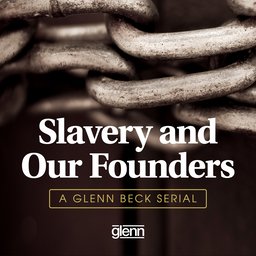Serial: Slavery and Our Founders - Thomas Jefferson
Slavery and Our Founders
Watch The Glenn Beck Radio Program, Monday through Friday, 9am - 12pm ET on BlazeTV. www.BlazeTV.com/GlennFifty-six Founding Fathers signed the Declaration of Independence. Of those 56, we know that 15 owned slaves and did not release them, nor did they want to. This minority of Founders is what we would call, in effect, racist. So what about the other Founders, those who did not own slaves or those who did but wanted to free them? Thomas Jefferson, in particular, has been singled out as a hypocrite who spoke against slavery, but didn’t free his own slaves upon his death. Why?
Let’s begin with the obvious: America’s Founding Fathers grew up in colonial America under English tradition and English rule. The colonies were an extension of Great Britain. It was the British, not our Founders, who brought slaves to this continent, and they did so for about 140 years. Thomas Jefferson, who grew up in 1700s Virginia where landowners owned slaves, began inheriting slaves at 14 years old. Even so, as he matured and considered the issue, Thomas Jefferson became decidedly anti-slavery.
So why didn’t Jefferson end slavery in his own home? State law in Virginia was very clear, and Jefferson wrote about it, saying the laws would not permit him to “turn them loose.” One law regarding slavery stated that if there was debt, slaves could not be freed and must be held to pay off that debt. Jefferson was, in today’s dollars, $2.5 million in debt. So by state law, he could not free his slaves.
Black civil rights leaders from multiple eras — Benjamin Beneker who personally knew Jefferson, Henry Highland Garnet, Frederick Douglass and Martin Luther King Jr. — praised Jefferson for his relentless efforts to end slavery.
When he was elected to the legislature of Virginia and took office in 1769, one of the first measures he introduced, along with senior legislature Richard Bland, was to end slavery in the entire state of Virginia. They were severely chastised for the measure with a clear message: You will not speak out against slavery — but Jefferson continued to do so. He went to court on two occasions and fought for slaves to receive freedom, pointing out that all men were created equal with equal rights under their creator. When he was elected to the Continental Congress, he introduced a measure to end slavery in all of the United States. That measure fell by one vote.
In his diary and memoir, Jefferson lamented that slavery did not end:
Oh, to God, that he would have changed one heart. What one heart, one vote of one man would have done.
Jefferson sought measure after measure, both at the state and national level, to end slavery. He even became involved in international efforts to end slavery. Two weeks before his death, Jefferson was still saying slavery had to end.
In 3 playlist(s)
Glenn Beck
Watch The Glenn Beck Radio Program, Monday through Friday, 9am - 12pm ET on BlazeTV. www.BlazeTV.com…Social links
Recent clips

Best of the Program | Guests: Rep Thomas Massie, Rep. Chris Stewart & Ezra Levant | 2/5/20
1:00:45

Trump Redefined the SOTU | Guests: Reps. Thomas Massie & Chris Stewart | 2/5/20
2:08:26

The Glenn Beck Program | Hour 3 | 2/5/20
32:23
 Glenn Beck
Glenn Beck

